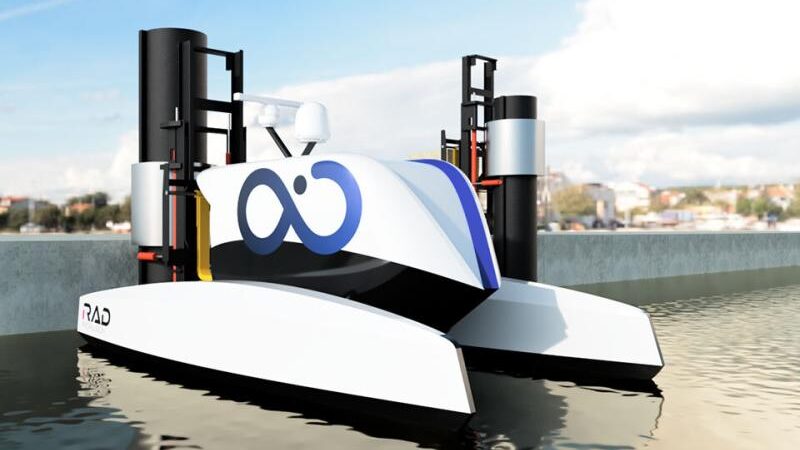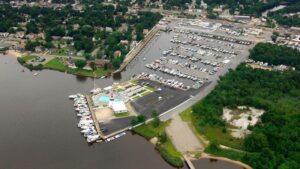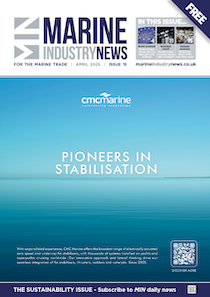Self-driving delivery boats to benefit from £1.8m future transport fund
 RAD Propulsion is creating a prototype that will make ‘last blue mile’ parcel deliveries on UK waterways.
RAD Propulsion is creating a prototype that will make ‘last blue mile’ parcel deliveries on UK waterways.
The UK has announced the 41 winning projects of the 2023 Transport Research and Innovation Grant (TRIG) competition, which will share more than £1.8m between them.
The grants will fund the development of new concepts, including an automated boat that could reduce road emissions by delivering parcels by water.
The TRIG scheme supports businesses and academics working on innovative ideas in the early stages of their research. It aims to improve the UK’s transport system across all modes, as well as growing the economy and supporting skilled jobs.
“We’re at the dawn of a new age for transport – AI can now help tackle universal challenges like station overcrowding or road congestion by using our historic waterways to deliver parcels by self-driving boat,” says decarbonisation, aviation and technology minister, Anthony Browne.
This year’s TRIG-winning projects include Southampton-based RAD Propulsion, which is creating a prototype that will make ‘last blue mile’ parcel deliveries on UK waterways. The project aims to cut road congestion and emissions and improve air quality.
“We’re proud to announce we have been awarded a Transport Research and Innovation Grant (TRIG) to improve delivery services using waterways,” a RAD Propulsion spokesperson says in a statement. “With road congestion at an all-time high, exacerbated by the demand for parcel deliveries due to the popularity of online shopping, we saw an opportunity to use our technology to make a positive impact on the environment.
“Our RADBus architecture developed for the RAD 40 electric drive will support an on-the-water prototype for the ‘last blue mile’ robotic delivery solution, completing the final stage of the delivery process through an automated, clean, electric marine system. This project will demonstrate how smart use of the waterways in many inland and coastal areas could make a real difference to road traffic and air pollution.”
Other winners include Duku, which is addressing challenges in maritime electric vehicle charging by testing its accessible charger for small passenger ferries and harbour and sightseeing vessels, improving inclusivity and sustainability among coastal communities.
TRIG has now been running for a decade, funding more than 400 companies with more than £14m in investment.
This year’s scheme focused on several different challenges, including airports, local transport and maritime decarbonisation, AI, digital twins, the future of connectivity, and the future of freight.
The grant is delivered in collaboration with the Connected Places Catapult (CPC), the UK’s innovation accelerator for cities, transport and place leadership. A renewed grant funding agreement with the CPC will begin on 1 April 2024.
“Transport Research and Innovation Grants support high-potential innovators to develop fresh ideas to tackle some of the UK’s most pressing transport challenges,” says Erika Lewis, chief executive at Connected Places Catapult.
“Grants have been awarded to projects right across the country covering many transport modes, with several recipients considering how technology developed for one sector could be transferred to another. Alongside the funding, all 41 projects will receive specialist business support from Connected Places Catapult to help them realise their commercial potential.”
Last month, RAD Propulsion revealed it has partnered with US custom naval architecture Stephens Waring Design on an exclusive project to produce a new 26ft electric commuter boat launching in autumn 2024.











